University of Greifswald
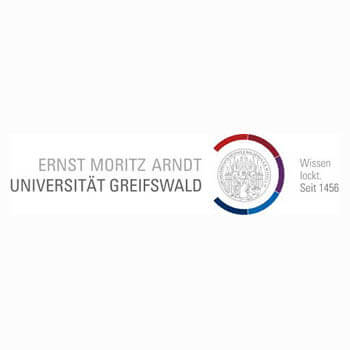
Founded: 1456
Address: Domstrabe 11 - Greifswald, Germany
Phone: +493834 4200
Address: Domstrabe 11 - Greifswald, Germany
Phone: +493834 4200
Here you find out University of Greifswald complete information about fees, location, degree University of Greifswald offers, number, website, and much more. University of Greifswald is a leading university in Greifswald - Germany.
You can also find out jobs at University of Greifswald for students, teachers, and professors. We also update the database for an internship at University of Greifswald for students.
The University of Greifswald is one of the oldest higher education institutions in Germany and the Baltic Sea Region. Founded in 1456, it is also the oldest Swedish university, as the region was ruled by the Swedes after the Thirty Years’ War and up until 1815. Today, the University of Greifswald is aware of its tradition and has become a modern University beside the Baltic Sea with approxima...tely 220 professors and 10,500 students. Currently, the University has 717 international students from 99 countries, the proportion of university entrants from abroad has risen to 8 percent.
Research at the University covers a broad spectrum, with five key fields of research: Community Medicine and Individualized Medicine, Environmental Change: Responses and Adaptation, Cultures of the Baltic Sea Region, Plasma Physics, and Proteomics and Protein Technologies. Recently, the University has also been successful in the state of Mecklenburg-Vorpommern"s Excellence Initiative.
Greifswald is known as a town with short distances, in which you will find intensive and personal relationships between teaching staff and students.
Studying conditions in Greifswald are excellent. Due to its geographical position in the Baltic Sea Region, cultural and academic contacts have grown historically, especially to partners in Poland, the Baltic States and to Scandinavia.
The University of Greifswald was opened ceremoniously on the 17 th October 1456 with papal approval by Duke Wartislaw IX of Pomerania-Wolgast. The sovereign founding is due in large to the initiative and generous funding from Greifswald’s mayor, Heinrich Rubenow.
By the end of the 15 th Century, Greifswald had gained importance for students from the Empire’s northern territories and from Scandinavia. However, the University opposed the Reformation and together with an outbreak of the Plague, this led to no more enrolments from 1527 onwards.
The University of Greifswald was reopened in 1539 with a teaching programme based on the example set by Wittenberg. A visible sign of the new beginning was the erection of an own building for the University (Ernesto-Ludovicianum 1591-1596) and the creation of a library from 1604 onwards. By giving the Eldena District to the University in 1634, Duke Bogislaw XIV hoped to guarantee the existence of the higher education establishment and thus managed to enable financial independence until 1872. As a result of the Thirty Years’ War (1618-1648), Vorpommern and the University fell under Swedish rule, at first destroying the first signs of any academic flourishing.
The “Swedish Era” (up to 1815) was good for the University, despite continuous and long- lasting wars. Impulses from the Age of Enlightenment were adopted by the University, which by then was acting more and more as a cultural bridge to Sweden, and developed on an intellectual level by scholars such as J.P. Palthen, A. v. Balthasar, H.E. Warnekros and P. Ahlwardt. The University Main Building with its famous Aula, which still stands today, was erected according to a design from A. Mayer from 1747-1750.
In 1815, Swedish Pomerania was passed to Prussia. The University was then Prussia’s smallest, but oldest university. At that time, it was medicine that developed particularly quickly. The expansion of the clinical field and the early subject-specific differentiation led to Greifswald developing Prussia’s second largest Faculty of Medicine, where researchers such as F. Loeffler and F. Sauerbruch worked. Prussia’s first Agricultural Academy was founded in 1835 on the University’s estate in Eldena and remained in close cooperation with the University until 1876.
Many new buildings have been built at the University since the end of the 19th Century. Inaddition to several clinics and the Audimax, the University Library was built in 1882 as one of the first buildings with a self-supporting closed stack system, where the bookshelves serve as both structure and shelving. From 1925 onwards, the University expanded with its Institutes of Medicine and Natural Sciences, on land given to the University by the town, in the eastern part of town. This is where the new campus is being developed today.
In 1908, women were admitted for studying for the first time. The University was supported again and again by private patrons. This was shown not only by the roughly 50 scholarships from private foundations that were awarded in Greifswald up until 1920, but also by the creation of the first German biological research institute on the Island of Hiddensee by the Society of Friends and Supporters of the University.
In 1933, the University adopted the name Ernst Moritz Arndt University. In the following years, many academics became victims of Nazi persecution and arbitrariness, which was not opposed in any considerable way by members of the University, students or teaching staff. The principles of academic self-government were destroyed to a large extent.
Thanks to the efforts of members of the University, the town of Greifswald was not destroyed during the peaceful handing over of the town to the Red Army in 1945. Teaching started again at the University on the 15 th February 1946. The Faculty of Law remained closed until its re-erection in 1992. Shaped by the university reforms of 1945/46, 1951 and 1968, Greifswald developed into a socialist university. In 1968, the faculty and institute structure was incorporated into the newly formed sections, the academic Senate ceased to exist.
After the political change in 1990, the faculties and the academic Senate were reinstated. The process of legal and structural reorganisation and the evaluation of the subjects and employees were largely completed with the implementation of the first University Statutes in 1995.
You can also find out jobs at University of Greifswald for students, teachers, and professors. We also update the database for an internship at University of Greifswald for students.
The University of Greifswald is one of the oldest higher education institutions in Germany and the Baltic Sea Region. Founded in 1456, it is also the oldest Swedish university, as the region was ruled by the Swedes after the Thirty Years’ War and up until 1815. Today, the University of Greifswald is aware of its tradition and has become a modern University beside the Baltic Sea with approxima...tely 220 professors and 10,500 students. Currently, the University has 717 international students from 99 countries, the proportion of university entrants from abroad has risen to 8 percent.
Research at the University covers a broad spectrum, with five key fields of research: Community Medicine and Individualized Medicine, Environmental Change: Responses and Adaptation, Cultures of the Baltic Sea Region, Plasma Physics, and Proteomics and Protein Technologies. Recently, the University has also been successful in the state of Mecklenburg-Vorpommern"s Excellence Initiative.
Greifswald is known as a town with short distances, in which you will find intensive and personal relationships between teaching staff and students.
Studying conditions in Greifswald are excellent. Due to its geographical position in the Baltic Sea Region, cultural and academic contacts have grown historically, especially to partners in Poland, the Baltic States and to Scandinavia.
The University of Greifswald was opened ceremoniously on the 17 th October 1456 with papal approval by Duke Wartislaw IX of Pomerania-Wolgast. The sovereign founding is due in large to the initiative and generous funding from Greifswald’s mayor, Heinrich Rubenow.
By the end of the 15 th Century, Greifswald had gained importance for students from the Empire’s northern territories and from Scandinavia. However, the University opposed the Reformation and together with an outbreak of the Plague, this led to no more enrolments from 1527 onwards.
The University of Greifswald was reopened in 1539 with a teaching programme based on the example set by Wittenberg. A visible sign of the new beginning was the erection of an own building for the University (Ernesto-Ludovicianum 1591-1596) and the creation of a library from 1604 onwards. By giving the Eldena District to the University in 1634, Duke Bogislaw XIV hoped to guarantee the existence of the higher education establishment and thus managed to enable financial independence until 1872. As a result of the Thirty Years’ War (1618-1648), Vorpommern and the University fell under Swedish rule, at first destroying the first signs of any academic flourishing.
The “Swedish Era” (up to 1815) was good for the University, despite continuous and long- lasting wars. Impulses from the Age of Enlightenment were adopted by the University, which by then was acting more and more as a cultural bridge to Sweden, and developed on an intellectual level by scholars such as J.P. Palthen, A. v. Balthasar, H.E. Warnekros and P. Ahlwardt. The University Main Building with its famous Aula, which still stands today, was erected according to a design from A. Mayer from 1747-1750.
In 1815, Swedish Pomerania was passed to Prussia. The University was then Prussia’s smallest, but oldest university. At that time, it was medicine that developed particularly quickly. The expansion of the clinical field and the early subject-specific differentiation led to Greifswald developing Prussia’s second largest Faculty of Medicine, where researchers such as F. Loeffler and F. Sauerbruch worked. Prussia’s first Agricultural Academy was founded in 1835 on the University’s estate in Eldena and remained in close cooperation with the University until 1876.
Many new buildings have been built at the University since the end of the 19th Century. Inaddition to several clinics and the Audimax, the University Library was built in 1882 as one of the first buildings with a self-supporting closed stack system, where the bookshelves serve as both structure and shelving. From 1925 onwards, the University expanded with its Institutes of Medicine and Natural Sciences, on land given to the University by the town, in the eastern part of town. This is where the new campus is being developed today.
In 1908, women were admitted for studying for the first time. The University was supported again and again by private patrons. This was shown not only by the roughly 50 scholarships from private foundations that were awarded in Greifswald up until 1920, but also by the creation of the first German biological research institute on the Island of Hiddensee by the Society of Friends and Supporters of the University.
In 1933, the University adopted the name Ernst Moritz Arndt University. In the following years, many academics became victims of Nazi persecution and arbitrariness, which was not opposed in any considerable way by members of the University, students or teaching staff. The principles of academic self-government were destroyed to a large extent.
Thanks to the efforts of members of the University, the town of Greifswald was not destroyed during the peaceful handing over of the town to the Red Army in 1945. Teaching started again at the University on the 15 th February 1946. The Faculty of Law remained closed until its re-erection in 1992. Shaped by the university reforms of 1945/46, 1951 and 1968, Greifswald developed into a socialist university. In 1968, the faculty and institute structure was incorporated into the newly formed sections, the academic Senate ceased to exist.
After the political change in 1990, the faculties and the academic Senate were reinstated. The process of legal and structural reorganisation and the evaluation of the subjects and employees were largely completed with the implementation of the first University Statutes in 1995.
Read More
Details:
LeaderShip: Rector: Prof. Dr. phil. Johanna Eleonore Weber
Fees:
Time:
Phone Number: +493834 4200
City: Greifswald
Fees:
Time:
Phone Number: +493834 4200
City: Greifswald
Timing:
Country: Germany
Staff: 6292
Website: http://www.uni-greifswald.de
Country: Germany
Staff: 6292
Website: http://www.uni-greifswald.de
Subjects:
Jobs in University of Greifswald
Currently, there is no job opening in University of Greifswald as per our database.

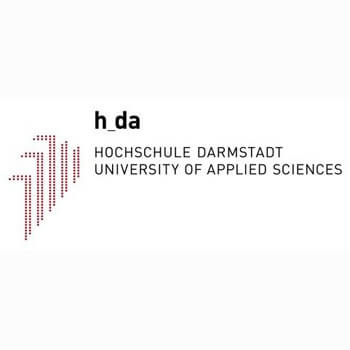
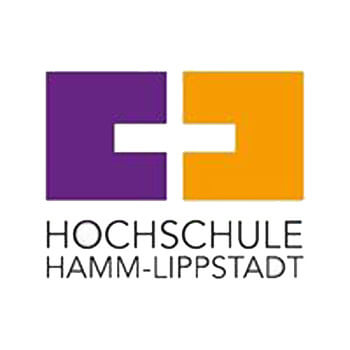
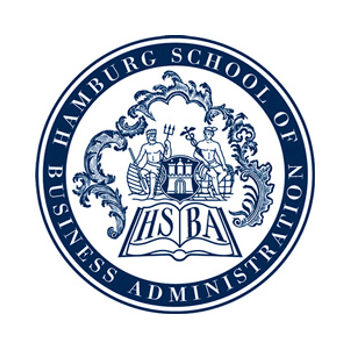
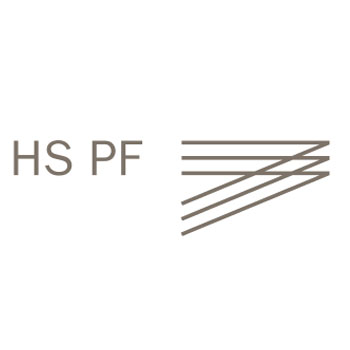
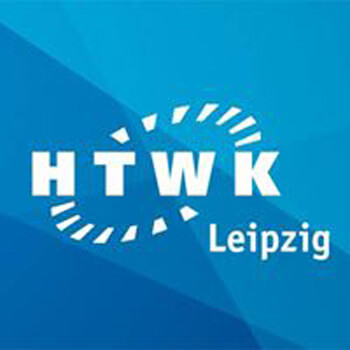


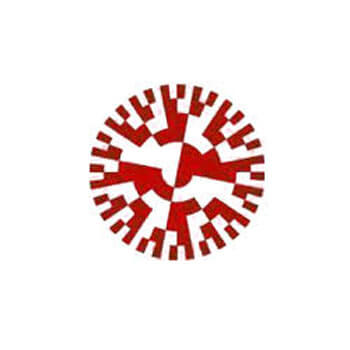










Leave a Reply